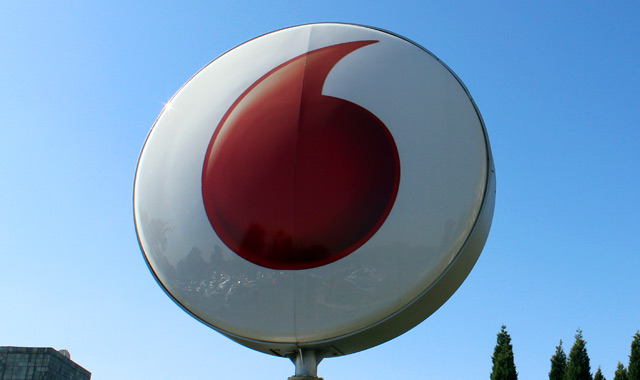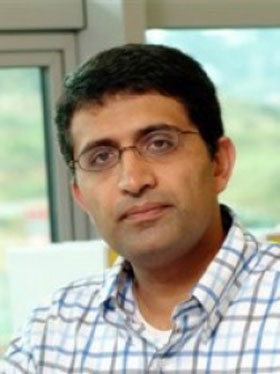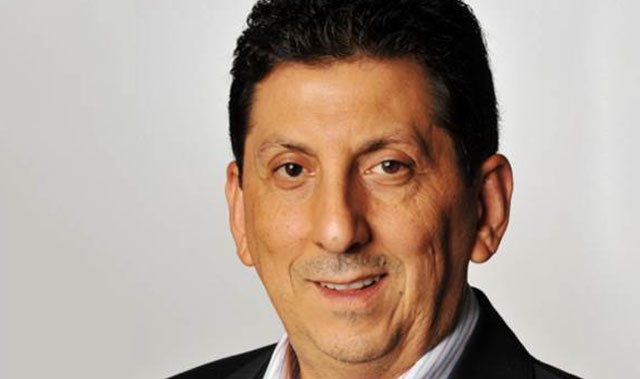
A senior executive at Vodacom believes so-called over-the-top (OTT) service providers such as WhatsApp and Skype should be allowed to “run free” on mobile operators’ networks, but emphasises that there is also “no place” in South Africa for so-called “dumb pipes” — operators that provide low-margin infrastructure only over which others provide all the services.
Operators should provide relevant technical and commercial services to OTT providers while also developing OTTs of their own in areas where they can make a big difference, says Ashraff Paruk, Vodacom’s recently appointed managing executive for digital services.
Paruk says that the company’s success lies in “enabling OTT players to run free” on its network.
He says Wasps, or wireless application service providers, “ran ahead” when Vodacom opened key elements of its network so that they could provide meaningful services to end users. “The question is, how do we enable OTTs from a technical level that adds value? [How do we] give them a deal that makes sense at a commercial level that doesn’t squeeze them? There has to be enough value from a network perspective,” Paruk says.
South Africa’s big operators, including Vodacom, MTN and Telkom, have expressed concern in recent weeks at the impact of OTTs on their businesses.

MTN South Africa CEO Ahmad Farroukh became the first to raise his concerns when he said in an interview with TechCentral in September that his company is not prepared to spend billions of dollars building advanced telecoms networks just so that OTT providers can get a “free ride” by competing with the company using that same costly infrastructure.
There has to be some sort of quid pro quo, he said.
Farroukh took aim at smaller rival Cell C for agreeing not to charge some of its subscribers for data when they access WhatsApp. “I laughed when I saw one of the operators zero-rating one of these very famous apps. This same app will launch voice [calls] soon.”
Taking the opposite view, Cell C CEO Jose Dos Santos said the move was driven in part by a need by mobile operators to embrace rather than fight OTT players.
Now Paruk, who has been tasked with building OTT services for Vodacom, says it’s important to embrace rather than alienate third-party service providers.
“Vodacom’s best path is enabling our own OTT services and enabling third parties by offering a network that is relevant to them in a way that makes sense,” he says. “And if you add value, you should be charging for it.”
But there are some OTT services that operators themselves should be providing, Paruk says. “That’s where Vodacom should be taking a stronger position. This is where the big change will come. And to be a truly successful OTT player, you have to go after all customers, not just Vodacom customers. M-Pesa is the first … where we have taken a strong position. There will be others.”
Vodacom has “no choice” but to launch OTT services of its own. “There are some services where we are significantly better positioned to take that strong position. They have to be of sufficient scale, they have to have a material impact on 30m, 40m or 50m customers.”
Paruk declines to say which OTT products it might launch, saying the plan is still being finalised.
But what of WhatsApp, which could threaten mobile operators’ voice call revenues?
“For conservative operators, the approach could be to make it harder for them, but that’s being negative,” Paruk says. “I can’t stop WhatsApp. I could launch my own service that provides similar value. And I could make the assumption that at some point my lunch is going to get eaten anyway, so if I don’t adapt I’m going to die.”

The solution, he believes, could be to go to WhatsApp and other providers of voice-over-IP and other solutions and offer to provide them with a guaranteed quality of service — for a fee, of course — that will allow them to better monetise their users.
Paruk says the South African market is too small to support the “dumb pipe” model, where operators provide only the basic infrastructure over which third parties provide services and profit. Operators have to play in value-added services, too, he says.
Vodacom, he says, wants to be a “smart pipe”. Paruk uses the example of video-on-demand (VOD) services to expand on his point. “Will VOD be the way people consume content in five years? Absolutely. Can one player fulfil those needs? No. Does our network need to provide capabilities for these companies to get to their customers? Absolutely — that is the smart pipe.”
Any operator that wants to build its business as a dumb pipe is “on a race to the bottom”, Paruk says.
In future, Vodacom could charge customers for a quality-of-service guarantee. What might such a guarantee offer? “You might pick up a [network] tunnel end to end. If you sign up for video, for an extra R50/month it will go through a separate pipe and you’ll not share it with anyone else on the network. Those that want the premium service will fund that premium,” Paruk says. — (c) 2014 NewsCentral Media




